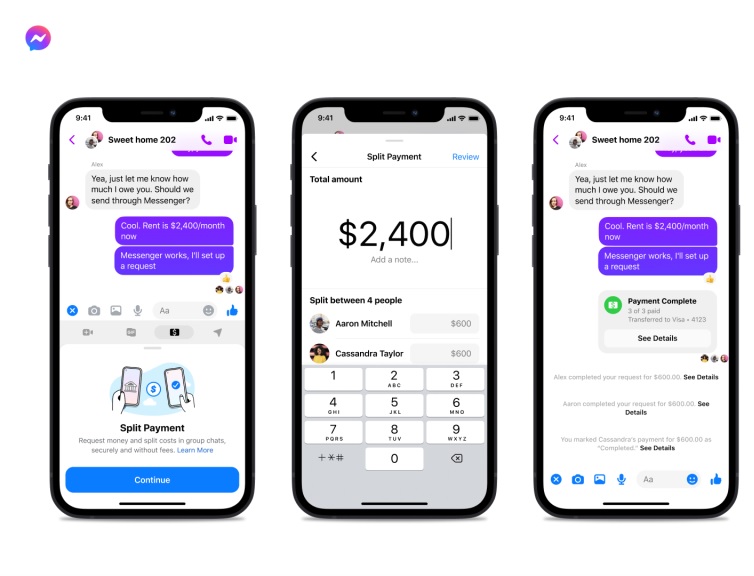Facebook is testing a new addition sharing service

Facebook has just rebranded itself as Meta but has not forgotten its core business: that of a social network. The group has therefore just announced that it is going to boost the functionalities of its instant messaging service Messenger at the end of the year. Payment is a key part of this approach to strengthening cooperative services.
FACTS
-
Facebook has just launched a new payment feature for its Messenger messaging service. The feature, called Split, will be available primarily as a test for a few US users.
-
Split is presented as a new, practical and fast way to share bills, invoices and other common expenses between friends or family members.
-
Group dinners, daily household expenses or even monthly rent are identified as examples of shared expenses that can be covered by the new Split feature.
-
A first test phase will therefore be launched, involving a selection of Messenger users. These users will be able to start using Split, Facebook's new split payment service, for free from the instant messaging service.
-
They will be presented with a simple button within their chat groups to make it easier to split bills and other additions among their participants.
-
It will be possible to split a common expense equally or set a personalised amount.
CHALLENGES
-
Valuing one's own payment ecosystem: Using the new Split service will require using Facebook Pay. The social network is thus multiplying its payment functionalities as part of an overall strategy to capture customers within a single ecosystem.
MARKET PERSPECTIVE
-
With the launch of a long-awaited pilot phase for Facebook's Novi in the US, the end of the year should have been quiet for the social giant's other payment services. However, Meta/Facebook's strategy is definitely to multiply experiments in favour of accelerating value-added solutions at the heart of its core offerings.
-
Especially since the flagship Novi project has just suffered another blow with the departure of its director, David Marcus. This is a bad sign, given that the Facebook/Meta crypto project has already encountered numerous obstacles during its development.
